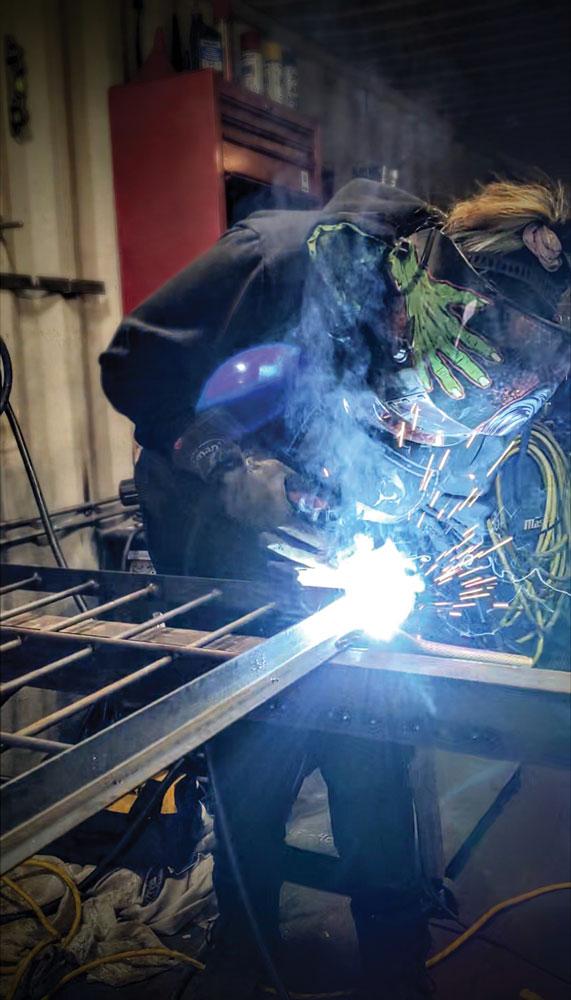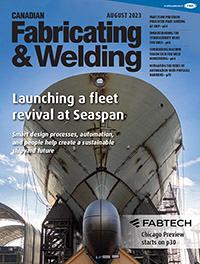Editor
- FMA
- The Fabricator
- FABTECH
- Canadian Metalworking
Business training helps welder build her skills
Tobique First Nation welder grows operations by understanding when and where to find support
- By Rob Colman
- September 22, 2023
- Article
- Welding
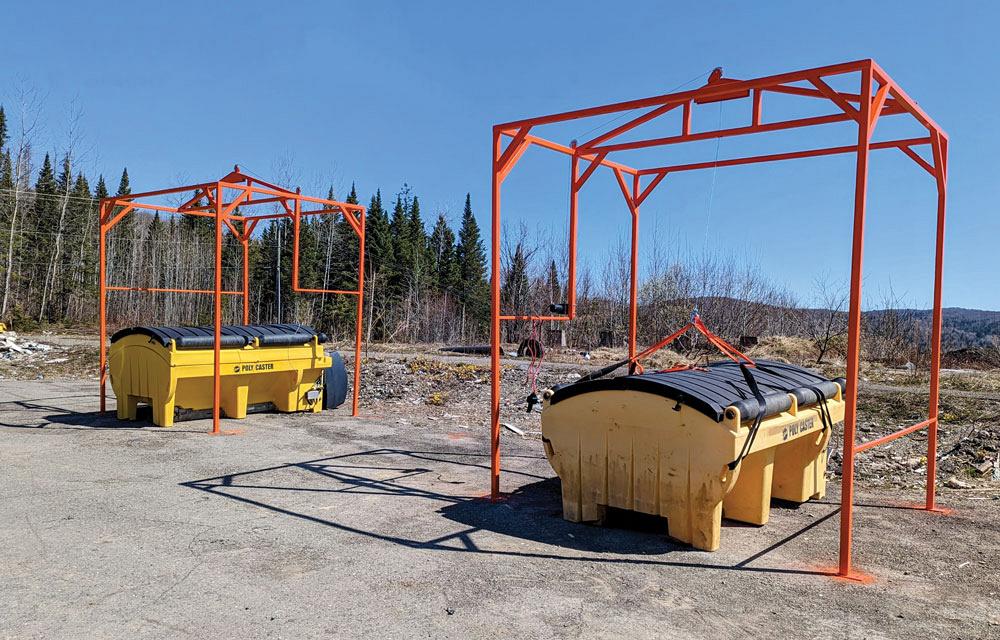
MC Metal Fabrication has done a wide variety of work so far, from fender repairs on trucks to rail jobs for multilevel decks to designing a winch system for loading a road sander onto the back of a truck, as seen here.
In business, it’s as important to understand what you don’t know as it is what you do. Many startup businesses fail early because the founder has mastered a particular skill set but doesn’t understand the requirements necessary to get paid sufficiently for an actual business to thrive. Figuring out how to navigate the learning process is key.
That’s what Candice Perley understood clearly when she set out to launch her business, MC Metal Fabrication, in Neqotkuk, Tobique First Nation.
Training and Apprenticeship
Perley first began studying welding with a particular interest in underwater welding.
“There was a wait-list to get into that program, though,” she said. “I finished my studies at New Brunswick Community College and started working for a trailer manufacturer in the meantime. But then an opportunity came to train to work at the Irving Shipyards and I went for that.”
Irving Shipbuilding’s Pathways to Shipbuilding enables access to education, training, and jobs for women, Indigenous Peoples, and Black Canadians. By providing groups which have been under-represented in shipbuilding with opportunities for employment, Pathways to Shipbuilding aims to strengthen the industry by attracting a more diverse and inclusive workforce.
“The program funded me to go to Nova Scotia Community College for a metal fabrication course,” said Perley. “Once that was done, I went to work at the shipyards.”
Although trained for fabrication work, Perley was keen to weld, and therefore became an apprentice welder at the shipyards. She stayed for more than three years.
“The shipyard was great, in that all you did was weld all day,” said Perley. “You become a really good welder because that is all that you are doing. The only downside was that for someone like me, who likes to run a torch, gouging, and fabricating, you can lose those skills and problem-solving abilities because you’re so focused in one area.”
When Perley’s mother became sick and couldn’t move to Halifax, she made the difficult decision to move home.
“When I got back, the only place to work as a welder was the trailer manufacturer that is a 40-minute drive away,” she said. “With two young kids and my mother sick, that became impossible to do, so I worked in carpentry for more than a year, but I wasn’t passionate about it the same way I am about welding.”
Understanding Knowledge Gaps
Perley was keenly aware that she didn’t know how to run a business, but she also knew she had the welding and fabricating skills that were the perfect foundation for a business in an area where there were few similar businesses.
To fill those gaps, Perley engaged with the Joint Economic Development Initiative (JEDI), a non-profit organization focused on helping Indigenous businesses in New Brunswick. That organization’s incubator program helps people interested in launching a business understand the basics necessary to get on their feet.
“If you have a business idea in mind and an idea of the products you want to create, they help you break down material costs, labour costs, overhead, and how to determine what you need to charge to remain a viable business in the long run. They help you develop a business plan and support your efforts to apply for loans to secure the basic needs of the business,” said Perley. “Through the loans, I was able to get most of the equipment I needed to start out.”
The business got started with Perley establishing a shop in two 40-ft. shipping containers that are 9.5 ft. high.
But Perley still didn’t feel like she had the business know-how to develop it further, so she engaged with JEDI once more and attended its 12-week procurement accelerator program.
“The program helped me understand how to reconcile all my accounts, how to get my tax number, how to do all the computer-related financial management side of the work,” said Perley.
Flexible Skill Sets
Perley’s partner, Matt Quinn, joined her in the business soon after she started. They met at Irving where they were both welders. He had also been welding trailers and has a background in fabrication. As a team, they are ready for any project that comes their way.
“He was doing that commute to the trailer company, and I said, ‘if you want to leave, I need you here,’” she said.
The couple has done a wide variety of work so far, from fender repairs on trucks to rail jobs for multilevel decks to designing a winch system for loading a road sander onto the back of a truck.
“We have a mobile welder to go out to do repairs on farming equipment,” she said. “We do MIG and stick welding in the shop and build heavy-duty truck racks, bug smokers, and firepits. As the only welding and fab business in Tobique First Nation, we do a lot for the community as well. We’re in the process of getting an 8-ft. by 10-ft. plasma cutting table so we can cut designs and parts in the shop also. We also sandblast, prime, paint, deliver, and install projects as needed.”
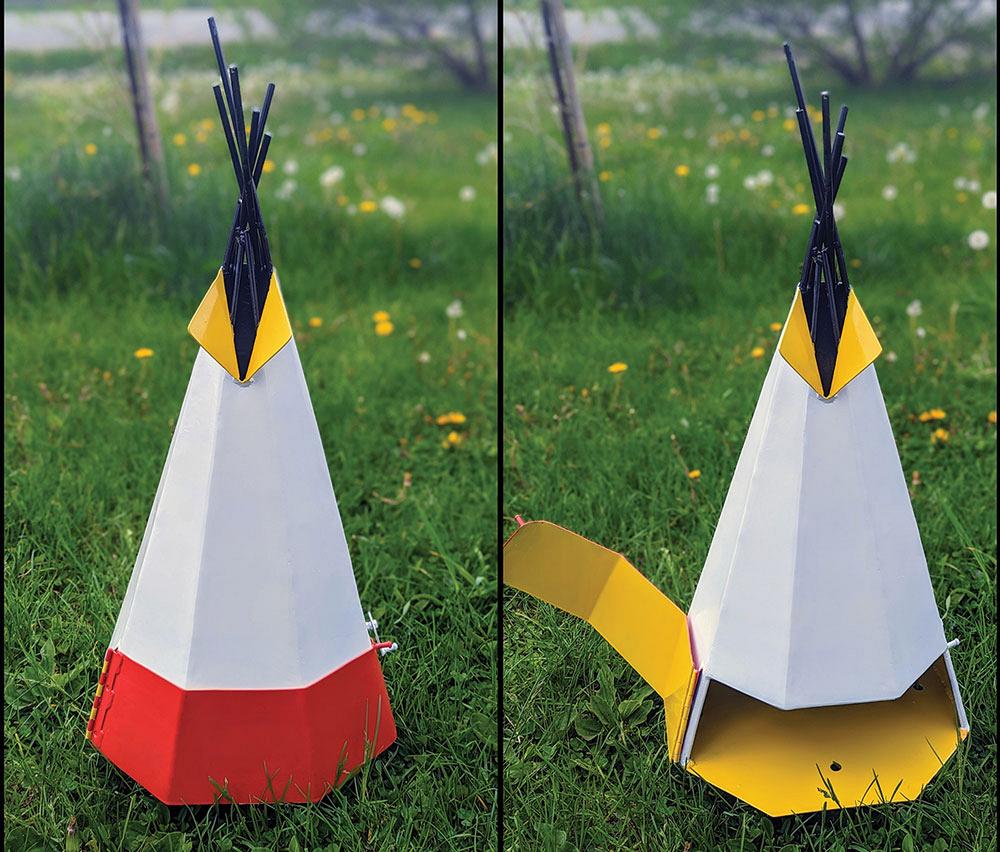
These bug smokers are a popular product that demonstrate, in a small package, most of what the shop does: fabricating, welding, and painting.
At the time of this interview, Perley said the shop was going through an expansion. The two containers were being pushed apart, the walls cut through, and trusses were being installed to put in a roof. The know-how in the shop and Perley’s further business skills are holding the team in good stead.
Becoming a Role Model
Perley never particularly wanted to run a business; it came about due to necessity and a love of the trades. But this passion, as well as her connection to her home community, has created a situation where her dreams have expanded.
“I feel like I can show others in my community, particularly other Indigenous women, that you can be a female in the trades and run your own business,” she said. “I’d like to see more youth in our community get into welding and hope I can teach others one day. For now, hopefully I can be an example by working in the community.”
Editor Robert Colman can be reached at rcolman@canadianfabweld.com.
About the Author

Rob Colman
1154 Warden Avenue
Toronto, M1R 0A1 Canada
905-235-0471
Robert Colman has worked as a writer and editor for more than 25 years, covering the needs of a variety of trades. He has been dedicated to the metalworking industry for the past 13 years, serving as editor for Metalworking Production & Purchasing (MP&P) and, since January 2016, the editor of Canadian Fabricating & Welding. He graduated with a B.A. degree from McGill University and a Master’s degree from UBC.
subscribe now


Keep up to date with the latest news, events, and technology for all things metal from our pair of monthly magazines written specifically for Canadian manufacturers!
Start Your Free Subscription- Trending Articles
Aluminum MIG welding wire upgraded with a proprietary and patented surface treatment technology

Achieving success with mechanized plasma cutting
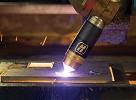
Hypertherm Associates partners with Rapyuta Robotics

Gema welcomes controller

Brushless copper tubing cutter adjusts to ODs up to 2-1/8 in.
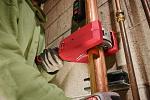
- Industry Events
MME Winnipeg
- April 30, 2024
- Winnipeg, ON Canada
CTMA Economic Uncertainty: Helping You Navigate Windsor Seminar
- April 30, 2024
- Windsor, ON Canada
CTMA Economic Uncertainty: Helping You Navigate Kitchener Seminar
- May 2, 2024
- Kitchener, ON Canada
Automate 2024
- May 6 - 9, 2024
- Chicago, IL
ANCA Open House
- May 7 - 8, 2024
- Wixom, MI













